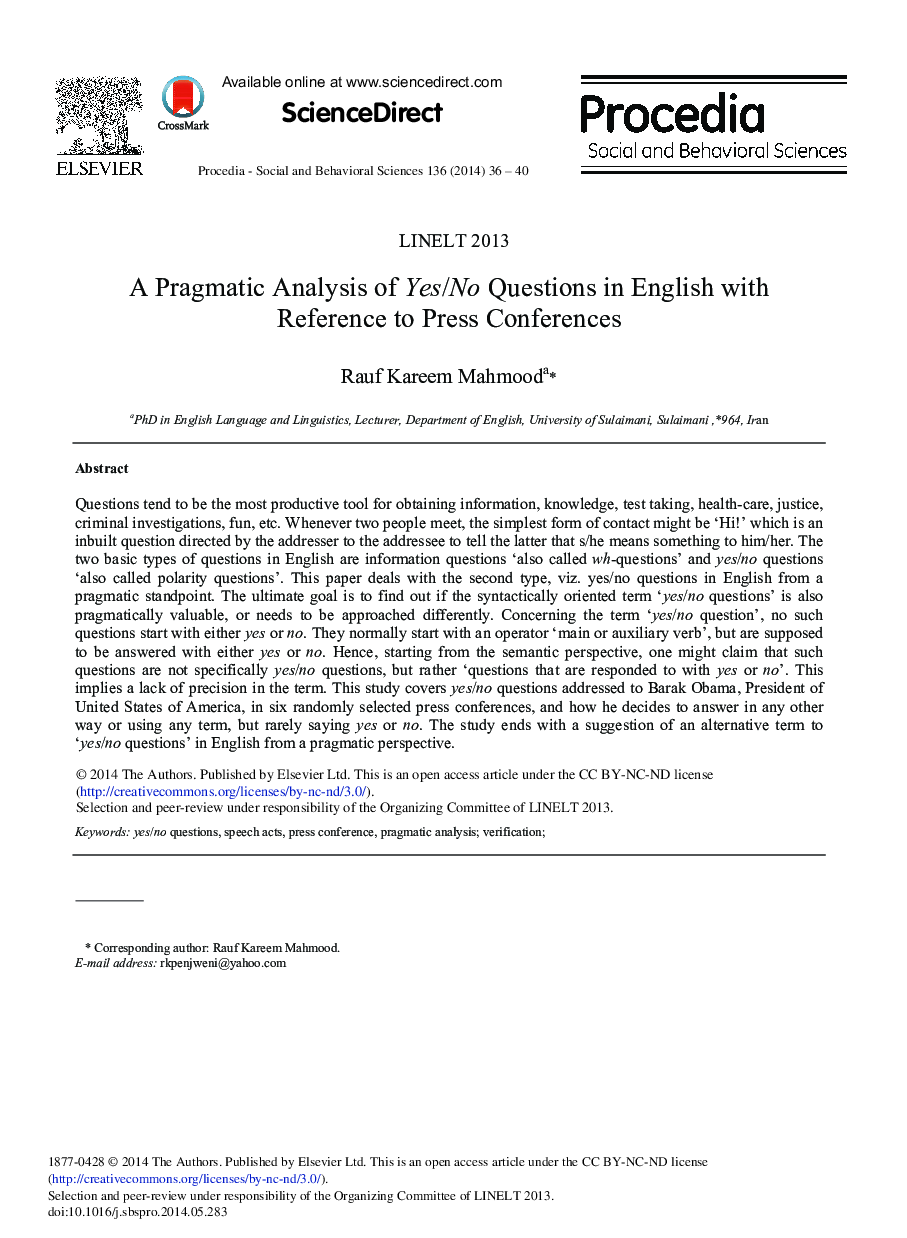| Article ID | Journal | Published Year | Pages | File Type |
|---|---|---|---|---|
| 1113515 | Procedia - Social and Behavioral Sciences | 2014 | 5 Pages |
Questions tend to be the most productive tool for obtaining information, knowledge, test taking, health-care, justice, criminal investigations, fun, etc. Whenever two people meet, the simplest form of contact might be ‘Hi!’ which is an inbuilt question directed by the addresser to the addressee to tell the latter that s/he means something to him/her. The two basic types of questions in English are information questions ‘also called wh-questions’ and yes/no questions ‘also called polarity questions’. This paper deals with the second type, viz. yes/no questions in English from a pragmatic standpoint. The ultimate goal is to find out if the syntactically oriented term ‘yes/no questions’ is also pragmatically valuable, or needs to be approached differently. Concerning the term ‘yes/no question’, no such questions start with either yes or no. They normally start with an operator ‘main or auxiliary verb’, but are supposed to be answered with either yes or no. Hence, starting from the semantic perspective, one might claim that such questions are not specifically yes/no questions, but rather ‘questions that are responded to with yes or no’. This implies a lack of precision in the term. This study covers yes/no questions addressed to Barak Obama, President of United States of America, in six randomly selected press conferences, and how he decides to answer in any other way or using any term, but rarely saying yes or no. The study ends with a suggestion of an alternative term to ‘yes/no questions’ in English from a pragmatic perspective.
